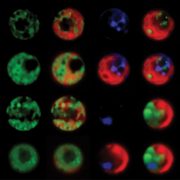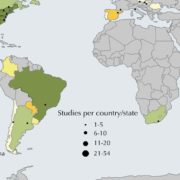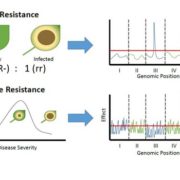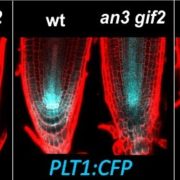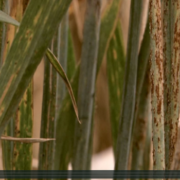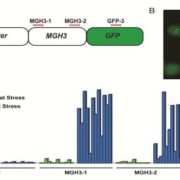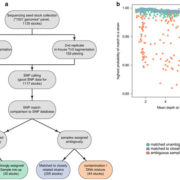Inhibition of RNA polymerase II allows controlled mobilization of retrotransposons for plant breeding
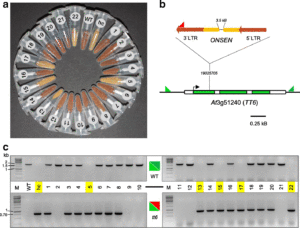 The lack of acceptance of GM-breeding calls for alternative strategies to develop new crop varieties to feed the world’s growing population. Moreover, the regulation of novel approaches for genome editing (CRISPR, TALEN) is still unclear and will potentially remain so for the near future (or will likely be very tight in Europe and parts of Asia and Africa). In this light, the findings of Thieme et al. could offer a new approach to develop genetic diversity in crop plants. By exogenously repressing RNA polymerase II , they showed an increased activity of certain types of transposons that “re-shuffle” the plant’s genome and thus create new genetic and epigenetic diversity. (Summary by Dominik Klauser) Genome Biol. 10.1186/s13059-017-1265-4
The lack of acceptance of GM-breeding calls for alternative strategies to develop new crop varieties to feed the world’s growing population. Moreover, the regulation of novel approaches for genome editing (CRISPR, TALEN) is still unclear and will potentially remain so for the near future (or will likely be very tight in Europe and parts of Asia and Africa). In this light, the findings of Thieme et al. could offer a new approach to develop genetic diversity in crop plants. By exogenously repressing RNA polymerase II , they showed an increased activity of certain types of transposons that “re-shuffle” the plant’s genome and thus create new genetic and epigenetic diversity. (Summary by Dominik Klauser) Genome Biol. 10.1186/s13059-017-1265-4


